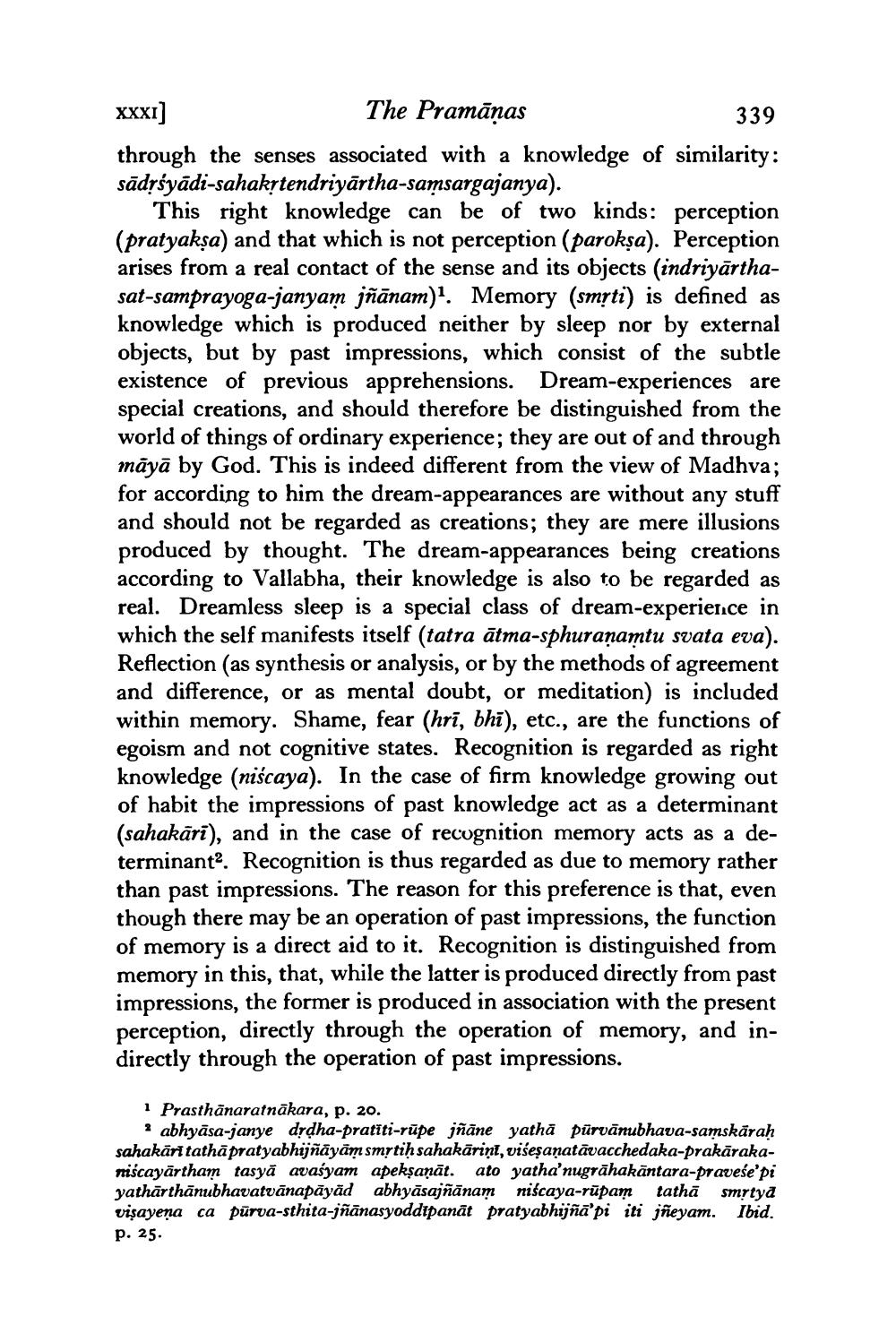________________
XXXI The Pramāņas
339 through the senses associated with a knowledge of similarity: sādrśyādi-sahakştendriyārtha-samsargajanya).
This right knowledge can be of two kinds: perception (pratyakşa) and that which is not perception (parokșa). Perception arises from a real contact of the sense and its objects (indriyārthasat-samprayoga-janyam jñānam)". Memory (smsti) is defined as knowledge which is produced neither by sleep nor by external objects, but by past impressions, which consist of the subtle existence of previous apprehensions. Dream-experiences are special creations, and should therefore be distinguished from the world of things of ordinary experience; they are out of and through māyā by God. This is indeed different from the view of Madhva; for according to him the dream-appearances are without any stuff and should not be regarded as creations; they are mere illusions produced by thought. The dream-appearances being creations according to Vallabha, their knowledge is also to be regarded as real. Dreamless sleep is a special class of dream-experience in which the self manifests itself (tatra ātma-sphuranamtu svata eva). Reflection (as synthesis or analysis, or by the methods of agreement and difference, or as mental doubt, or meditation) is included within memory. Shame, fear (hrī, bhi), etc., are the functions of egoism and not cognitive states. Recognition is regarded as right knowledge (niscaya). In the case of firm knowledge growing out of habit the impressions of past knowledge act as a determinant (sahakārī), and in the case of recognition memory acts as a determinant. Recognition is thus regarded as due to memory rather than past impressions. The reason for this preference is that, even though there may be an operation of past impressions, the function of memory is a direct aid to it. Recognition is distinguished from memory in this, that, while the latter is produced directly from past impressions, the former is produced in association with the present perception, directly through the operation of memory, and indirectly through the operation of past impressions.
1 Prasthānaratnākara, p. 20.
? abhyāsa-janye drdha-pratiti-rūpe jñāne yathā purvānubhava-samskārah sahakäri tathāpratyabhijñāyām smrtih sahakāriņi, višeşanatāvacchedaka-prakārakamiscayārtham tasyā avasyam apeksaņāt. ato yatha'nugrāhakāntara-praveśe'pi yathārthānubhavatvānapāyād abhyāsajñānam niscaya-rupam tathā smrtya vişayeņa ca pūrva-sthita-jñānasyoddipanāt pratyabhijñā'pi iti jñeyam. Ibid. p. 25.




